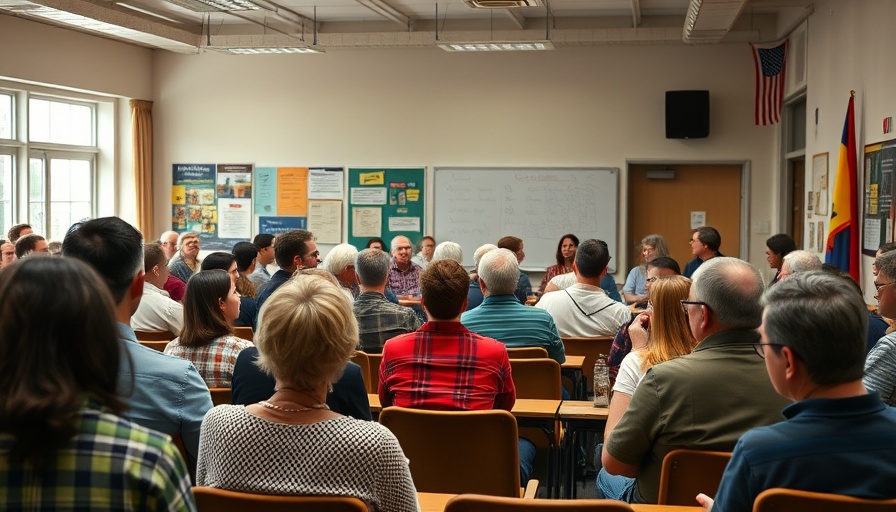
The Importance of Online Safety Education in Today's Digital Age
As technology continues to evolve, so do the threats our children face online. Constable Luke Cameron of the Scottish Borders is tackling this head-on by dedicating his efforts to educating over 2,000 children about online safety. With many parents concerned about the rise of cyberbullying and online exploitation, Cameron’s role as a Schools Link Officer couldn’t be more critical.
The Rising Threat of Cyberbullying and Exploitation
One of the most alarming trends in today’s digital landscape is the increase in online bullying, sextortion, and male toxicity. Constable Cameron has noted these issues are pervasive and often overlooked by adults. "I support schools as much as I can in a policing capacity, which includes incidents that arise at a school. This might be property theft, bullying, fighting, and also more serious issues like hate crime, sextortion, and child protection," he explains. Educators and parents alike have voiced concerns about this troubling trend, and it’s clear that proactive measures must be taken to safeguard our children.
Building Trust Between Police and Schools
The unique role of Police Constable Cameron allows him to bridge the gap between law enforcement and the education system. His work is integral in establishing trust within the community. By providing educational resources and open dialogue, he fosters an environment where children feel safe discussing their online experiences. "The biggest part of my job involves education and engagement," he states, underscoring the significance of his mission.
Best Practices for Keeping Kids Safe Online
With so many kids spending significant time online, parents must be equipped with knowledge and tools to protect their children. Here are several best practices parents can implement:
- Regular Conversations: Regularly discuss online experiences with your kids. Ask them about the websites they visit and who they interact with.
- Use Parental Controls: Leverage parental control software to monitor and limit screen time. This technology can help filter inappropriate content effectively.
- Educate about Cyberbullying: Teach children about the signs of cyberbullying. Empower them to speak up and report any instances they encounter.
- Set Boundaries: Establish clear rules regarding internet use and social media engagement.
- Create a Safe Space: Ensure children feel comfortable discussing their online challenges without fear of judgment or punishment.
The Role of Schools in Promoting Online Safety
Schools play a pivotal role in the campaign against cyberbullying. With input from officers like Cameron, educators can implement curriculum components that focus on online safety. Cameron has already delivered safety presentations to many primary seven students, noting the increasing interest and necessity for such topics. His efforts parallel a growing demand for schools to take a proactive stance on digital citizenship and responsible online behavior.
A Call to Action
As parents, it’s vital to prioritize your child’s digital safety. Engage with your child about their online experiences, support educational initiatives like those led by Constable Cameron, and utilize the tools available to protect them. The time is now to cultivate a safer online environment for our children.
In conclusion, the efforts of Constable Luke Cameron not only underscore the need for increased vigilance in our children's online interactions but also highlight the collective responsibility we share in fostering a safe digital landscape. By working together—parents, schools, and law enforcement—we can create a community where children can thrive safely online.
 Add Row
Add Row  Add
Add 




Write A Comment